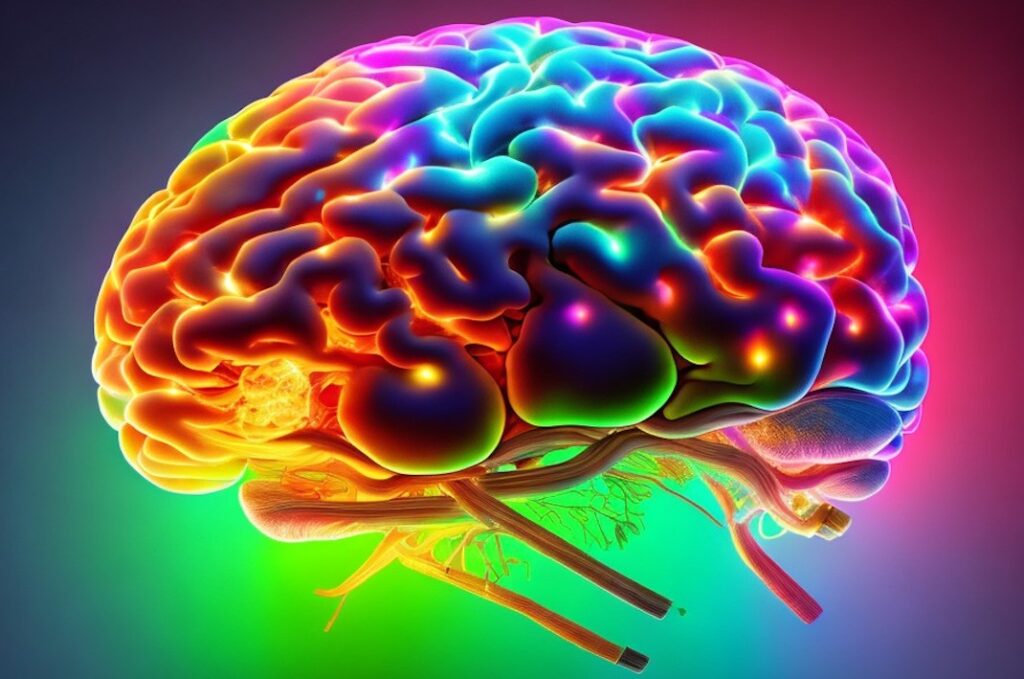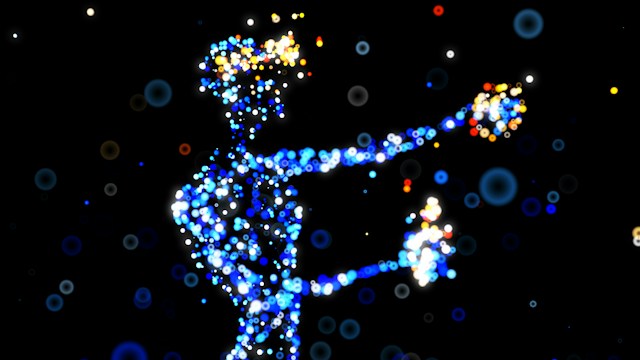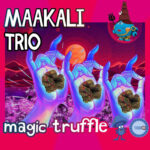Of course, we all know the story of Steve Jobs, the iconic Apple Inc. co-founder who famously linked his pioneering success to using LSD in his youth. Jobs even claimed it was among the “two or three most important things” he had done in his life.
In fact, there are a notable number of scientific, technological, and mathematic visionaries that have flagged psychedelic-usage as having a key impact on their later achievements. That’s not to mention all the musical and artistic visionaries that have had their paths illuminated by shrooms, LSD, and all that good stuff, too. So, what does this mean? You take some psychedelics and suddenly you are able to visualize a microchip, solve an equation, or compose a concerto?

Psychedelics are “Amplifiers”
Well, not exactly. Dr. Stanislov Grof famously called psychedelics “non-specific amplifiers”. Meaning, basically, that psychedelics are able to make louder, or bring to the front, the things that are already present in our brains. For example, if you’ve never played piano before you won’t suddenly be able to. But if you are a trained pianist, using psychedelics could offer novel insights into your craft — new ideas, a fresh perspective.
This idea is backed up by the research that Oscar Janiger carried out in the 1950s, in Los Angeles. During his study he dosed over 950 people with LSD, with a focus on how it would affect their creativity. The psychiatrist meticulously documented every participant’s experience, and from this, Janiger concluded that while LSD didn’t make you more creative per say, it could influence and enhance those who already had a creative mind.
To summarize: psychedelics can help you to advance in the fields in which you are already engaged. If you are working in technology — dreaming up new developments — experimenting with psychedelics may help to make those dreams a reality.

“Turn On, Boot Up, Jack In”
Although the rapid technological boom of the previous century is of course the result of many more elements than just psychedelic use, there are definite conceptual and philosophical links between psychedelics and the age of cyberspace in which we find ourselves. In fact, psychedelic icon Timothy Leary called personal computers “the LSD of the 90s”. He even remixed his famous “turn on, tune in, drop out” mantra to “turn on, boot up, jack in.”
The Link Between Psychedelics and Scientific Creativity
A recent study, published in 2022 in Drug Journal explored ‘Psychedelics as potential catalysts of scientific creativity and insight’. In this study, the researchers drew parallels between the dreamstate, the hypnagogic (aka between sleeping and waking) state, and the psychedelic state. These states all overlap phenomenologically, and all share common features that make them effective in supporting various aspects of scientific creativity. Thus in the study, notable scientific and mathematical breakthroughs that were made as a result of being within the dream, hypnagogic, or psychedelic state were collected.
For example, American biochemist Kary Mullis, who discovered a way of automating the polymerase chain reaction (PCR), claims his use of LSD played a vital role in his discovery. Mullis, who won the Nobel Prize in Chemistry for this breakthrough, explained that his discovery came not while he was under the influence, but rather after his trip. The researchers suggest this could mean psychedelics can trigger a longer lasting change in creativity or cognition. Mullis himself said in 1997;
“…I could sit on a DNA molecule and watch the polymerase go by…I’ve learned that partially I would think, and this is again my opinion, through psychedelic drugs…if I had not taken LSD ever would I have still been in PCR? I don’t know, I doubt it, I seriously doubt it.”
Psychedelics: More Effective than Dreams?
The study goes on to posit the ways in which psychedelics can be useful in the future to facilitate and enhance scientific creativity. While dream and hypnagogic states are also conducive to scientific breakthroughs, they cannot necessarily be planned, or purposefully caused. Psychedelic experiences on the other hand, can be controlled, planned on, and more easily recorded.

How Psychedelics Can Be Harnessed For Study
The study suggests the conditions under which psychedelic experiences may be beneficial for scientific creativity.
“…psychedelics are likely to be best used in the context of meaningful and emotional engagement and involvement with creative tasks and when prior in-depth focus and effort has already been exerted on the subject in question, or when a creative block is hampering progress…
Intent has been found to be a key determinant of the outcomes of psychedelic experiences, and entering into the experience with the prior motivation and intent to harness the creativity enhancing potential of the psychedelic state is likely an important aspect of their successful application.”
The researchers also propose that psychedelics may even lead in terms of creative benefits over dream and hypnagogic states. This is due to qualities specific to psychedelics such as;
“…brain hyperconnectivity, meta-cognitive awareness, access to a more dependable and sustained altered state experience, and potential for eliciting sustained shifts in trait openness.”
The Future of Psychedelics and Tech
The term ‘psychedelic’ was coined in 1956 by Humphry Osmond, meaning “mind-manifesting.” Today, with Silicon Valley tech-heads getting their creative juices flowing by microdosing psilocybin, and psychedelics being featured at the World Economic Forum, these minds are sure manifesting. For example, there’s Neuralink, the breakthrough interface for brain and machine that claims it will connect your thoughts with software — the literal computer-chip-in-your-head the conspiracy theorists warned you about. Or another trippy tech creation dreamed up by Cybin and neuroscience technology makers Kernel — personal fMRI scanners for your home, so you can watch your brain activity while you’re under the influence of psychedelics.
There are also many developments in virtual reality software, that when combined with psychedelics aim to become accessible treatments for a whole host of mental health conditions.

Will all the possibilities and potential we humans have, especially when combined with the mind-manifesting powers of psychedelics, surely the sky’s the limit. However, equally important going forward will be remembering the most vital magic that psychedelics can impart — the feeling of connection with our fellow human, and our home planet.





